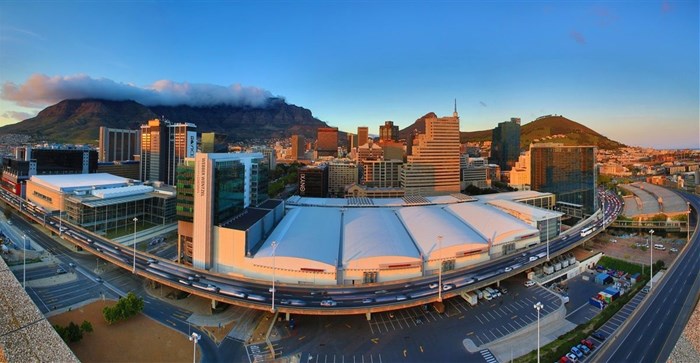






According to the Association of International Convention Centres (AIPC), the 2017 average growth rate for centres around the world was 9%. The CTICC exceeded this with a growth of over 14% - double the AIPC’s forecasted growth rate of 7% for 2018, which reaffirms the CTICC’s position as one of the world’s leading, international convention centres.
"In 2017/18 our revenue increased by 14.2% from R215.6m to R246.3m, while Earnings Before Interest, Tax, Depreciation and Amortization (EBITDA) also rose well above our target of R24.3m to R57.2m. These results are particularly pleasing in the current economic climate," said Julie-May Ellingson, CTICC chief executive officer.
The centre hosted a total number of 525 events during the period under review, and made a net contribution to foreign exchange earnings of R681m.
For the year under review, the CTICC received an overall customer satisfaction index of 85%, a healthy 7% above the target of 78%.
"Delivering exceptional customer service is essential to our success. Our service delivery is measured by N’Lighten, an independent company who conduct surveys with event organisers on a monthly basis via face-to-face, telephonic and email interviews. This feedback is invaluable in assisting the CTICC to determine what we are doing right and what we need to improve upon."

The CTICC has been in operation for 15 years, and during this time the centre has contributed significantly to job creation having created/sustained over 115,000 jobs since opening.
"Over the 2017/18 period, we created jobs for 8,553 individuals which was a 9 % increase on the previous year and in an economy that is shedding jobs, this is something we are particularly proud of," adds Ellingson.
The CTICC’s purpose, which runs through every aspect of the business, is to “connect people to create jobs by attracting events in key economic sectors and exceeding our clients' expectations."
Ellingson noted that every job held by a woman is estimated to feed eight people. “This fact drives our supplier selection decisions and our focus on women-owned enterprises. Our expenditure with women-owned enterprises increased considerably to 40% in the past financial year from 29% in the 2016/17 financial year.
The CTICC’s B-BBEE spend for the 2017/18 financial year was R288m, which equates to 87% of its net spend.
Ellingson also noted that the CTICC’s commitment to training and development remained strong, with a substantial R3.1m spent on training. "Short-term and long-term training is essential for upgrading internal and external staff skills and over 400 individuals received training in the 2017/18 financial year."
Ellingson said that training had embraced the four key aspects of skills development: statutory, vocational, developmental and values-based leadership: "We focused mainly on capacity building, leadership development, team building, change management, effective employee engagement and coaching."
To make sure that the centre’s food offering is of the highest standards and quality, the CTICC in the period under review, embarked on a process to add to its already existing certifications and accreditations, by consistently monitoring daily and monthly hygiene food preparation protocol put in place by the CTICC’s kitchen.
"We are very pleased to have achieved yet another ISO certification, namely ISO 22000 - Food Safety Management System. This covers every link in the food chain to ensure food is consistently safe from the source, through preparation, to consumption," added Ellingson.
The CTICC implemented a number of initiatives aimed at decreasing its water usage, along with efforts to reduce waste and energy consumption. These programmes have seen a reduction in water consumption of 30.4%.
• Stopped the water supply to all ablution facilities and provided visitors with hand sanitiser;
• Installed water storage tanks which hold up to 265 000 litres of water – this was used for irrigation and cleaning;
• Captured condensate from its air-conditioning units to the approximate amount of 20 000 litres per week (used for cleaning purposes);
• Reduced its dishwashing loads by not using table clothes and offering clients the option of using disposable napkins and biodegradable cups.
• In addition, we are in the final testing phase of our reverse osmosis desalination plant which was completed at the end of last month and will produce clean, fully potable water.
• The CTICC will also continue to raise awareness around water savings amongst its staff, clients, visitors and local community partners.
In conclusion, Ellingson highlighted that the CTICC is making and continues to make a positive contribution to the Western Cape GGP, South African GDP, to job creation, household income, the environment and communities. "The CTICC continues to demonstrate its value to the City of Cape Town, the Western Cape Province and South Africa. The CTICC team have worked hard in a challenging year and are pleased with the positive results achieved in the 2017/18 financial year."